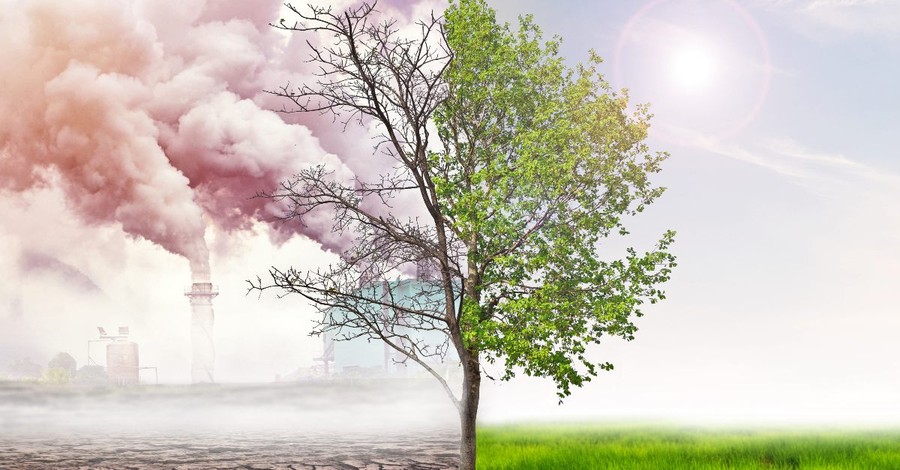
At least since the movie Inherit the Wind butchered the history of the 1925 Scopes “monkey trial,” many Americans – especially those on the left side of the political spectrum – have cherished a kind of myth about national debates being settled in dramatic courtroom clashes. In reality, they seldom are. However, that doesn’t stop idealistic plaintiffs from trying.
The most recent controversy dragged before a judge was whether the state of Montana could be held responsible for climate change. Earlier this month, Montana District Court Judge Kathy Seeley ruled that the state’s failure to take climate change into account when greenlighting new oil and coal projects was unconstitutional. The plaintiffs were a group of young people called Our Children’s Trust. They sued the state over fossil fuel production, claiming that Montana violated a section of its constitution that guarantees citizens “the right to a clean and healthful environment.”
Climate activists have hailed the decision as a significant victory and model for the nation but have not been clear on what exactly has been accomplished. As The New York Times put it, unless a higher court overturns the ruling, Montana must now “consider climate change when deciding whether to approve or renew fossil fuel projects.” That’s all. They must “consider.”
Ed Whelan at National Review concluded that the impact of this “Children’s Crusade to defeat climate change” on actual energy production and carbon emissions “might well be zero.” Perhaps future projects will involve a symbolic gesture, akin to the so-called “land acknowledgments” commonly seen in academia and on recent episodes of Alone Australia. These rituals involve a speaker beginning by naming the Native American tribes on whose ancestral land they’re standing. Of course, such acknowledgments, as Princeton’s Robert George recently remarked, “do no one any good.” No one gets land back. No de-colonization takes place. There aren’t any reparations. It’s “just a cost-free form of moral preening.”
Few issues are more consistently plagued by this kind of cost-free preening than the debate over climate change, and not only in America. Last month, Spanish Climate Minister Teresa Ribera dramatically arrived at a European Union climate conference by bicycle. Photographers and reporters weren’t supposed to find out that that she took a limo for most of the trip and only pedaled the last couple of blocks. But I’m sure Mother Earth was grateful.
Almost everything about the Montana case was similarly theatrical, from the 16 children recruited and presumed to have standing to sue the state, to its arbitrary nature. Why Montana, which produces a lot of oil and gas but has only about a million residents, rather than, say, California, which has about 40 times the population, creates a significant demand for that fuel, and emits vastly more CO2?
Answering that question requires speculation about people’s motives. All of it certainly looks as if the primary goals of so much climate activism isn’t to cool the planet, but to display superior virtue. At heart, it is not so different than the Pharisee from Jesus’ parable, who loudly thanked God that he was not like other men.
It’s true that we have a responsibility to leave our children a healthy planet, but the work required to do that won’t be done in the courtroom of sparsely populated states or by bicycle photo ops. It will take place in the workshops and imaginations of engineers who come up with better and cleaner energy sources. It will take place in legislatures that have the will and the ability to lift restrictions on existing alternatives like nuclear energy. It will take place when those who say they care about the planet stop trying to locate the problem with someone else “out there” (usually in red, flyover states) and start recognizing their personal responsibility for both the problem and the solutions.
Most of all (and here we move beyond just the climate change debate), we need to recognize how unhealthy our addiction to “cost-free moral preening” is. It’s a habit at the heart of so much we fight over, from mommy blogs and those annoying “we believe in” yard signs to pandemic posturing and presidential elections. The constant need to be better than “those people” – and to be seen being better – betrays a deep spiritual anxiety that no amount of political posturing can cure.
This Breakpoint was co-authored by Shane Morris. For more resources to live like a Christian in this cultural moment, go to breakpoint.org.
Publication date: August 30, 2023
Photo courtesy: ©iStock/Getty Images Plus/angkhan
The views expressed in this commentary do not necessarily reflect those of CrosswalkHeadlines.
BreakPoint is a program of the Colson Center for Christian Worldview. BreakPoint commentaries offer incisive content people can't find anywhere else; content that cuts through the fog of relativism and the news cycle with truth and compassion. Founded by Chuck Colson (1931 – 2012) in 1991 as a daily radio broadcast, BreakPoint provides a Christian perspective on today's news and trends. Today, you can get it in written and a variety of audio formats: on the web, the radio, or your favorite podcast app on the go.
John Stonestreet is President of the Colson Center for Christian Worldview, and radio host of BreakPoint, a daily national radio program providing thought-provoking commentaries on current events and life issues from a biblical worldview. John holds degrees from Trinity Evangelical Divinity School (IL) and Bryan College (TN), and is the co-author of Making Sense of Your World: A Biblical Worldview.











